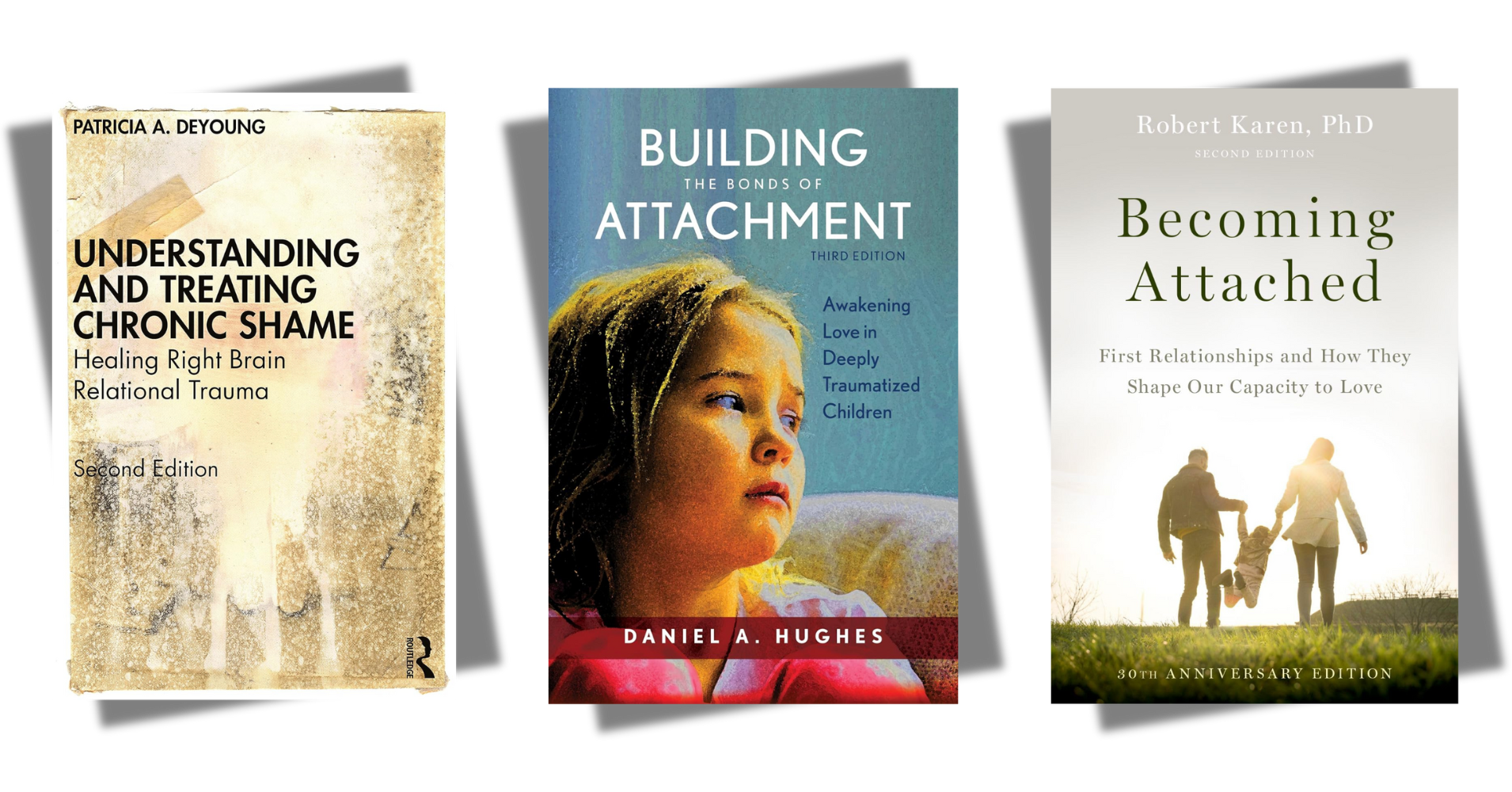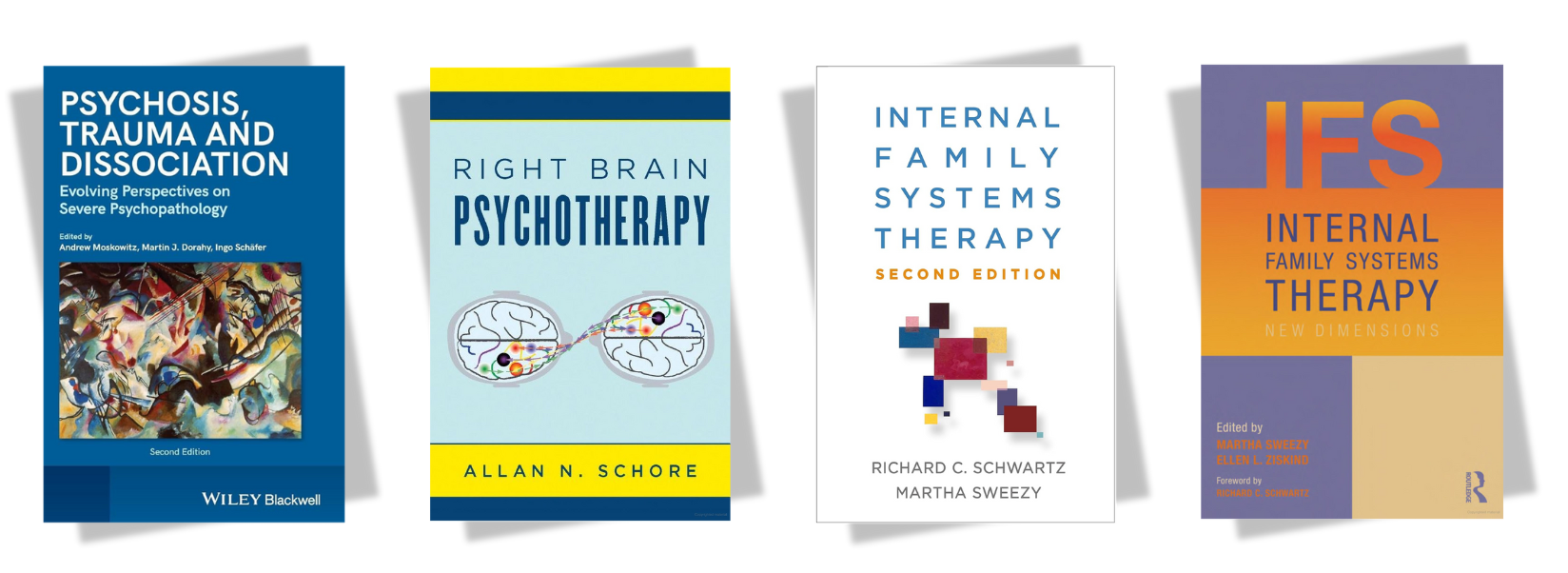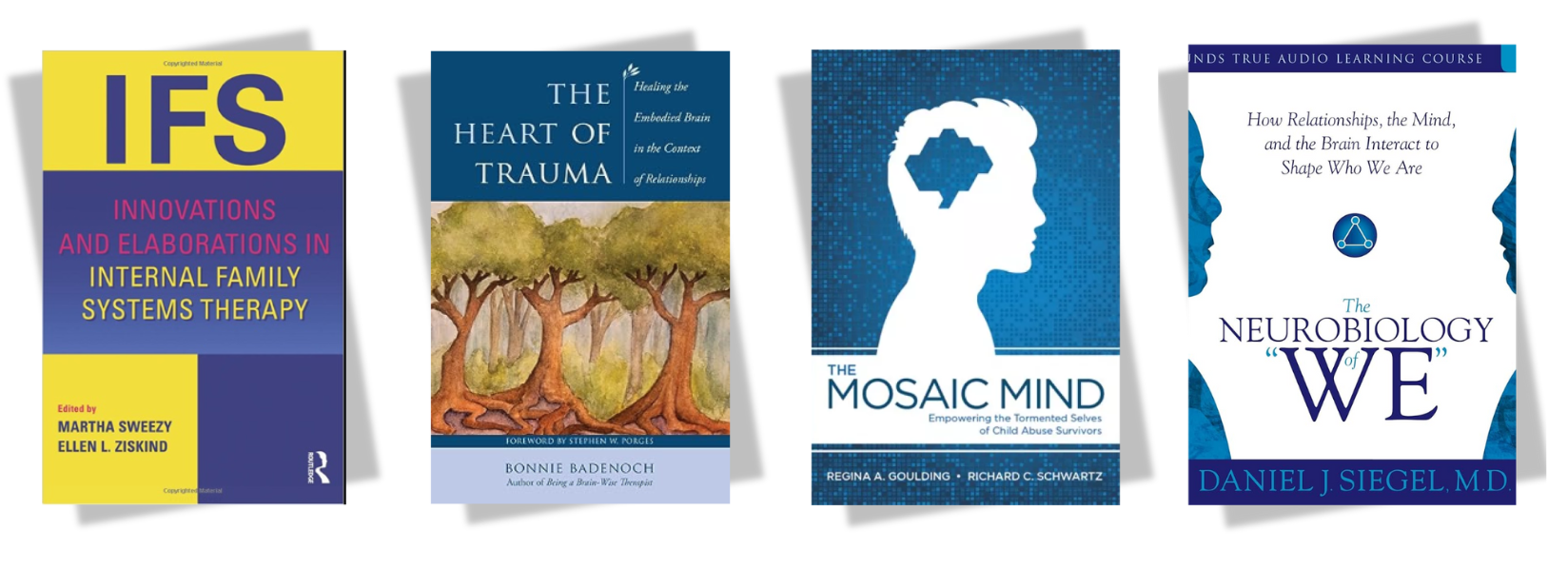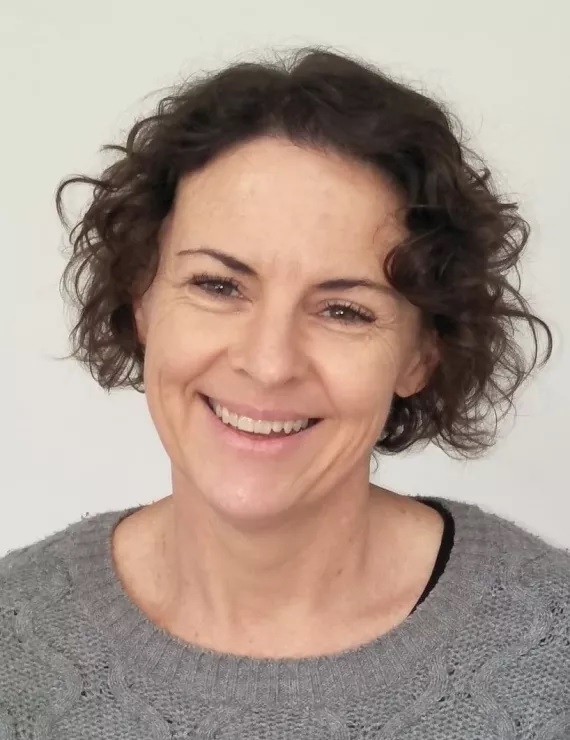Nuance and Attunement
in the IFS Model
New Course starting April 2026
An Interpersonal Neurobiologically Informed Approach to working with Relational Trauma
- Would you like to learn nuanced skills in IFS for clients who ‘can’t go inside’, get easily dysregulated, or those who have many parts jumping in, one after another during sessions?
- Would you like to feel more Self-Led when working with clients who use a lot of transference and projection in the therapeutic space?
- Are you a therapist or practitioner already familiar with the basics of the IFS model and would like more skills for working with complex shame, preverbal trauma and highly polarised systems?
Are you ready to take a deep dive into a more
RELATIONAL APPROACH to IFS?
This unique course offers a deep dive into the skills of IFS from a psychotherapeutic standpoint.
This course is exclusively focused on attunement
and skill-building within the IFS Model.
Drawing on the research of Interpersonal Neurobiology we look at how we can create safety for clients with early attachment wounding, complex trauma, and other highly polarised systems
Over 28 Hours of Learning
- 21 hours live classes
- 7 hours pre-recorded videos.
- Plus access to a Library of demos, articles, videos and transcripts
Live Practice & Integration
7 x 3-hours live workshops where we focus on the practical applications of what we are learning. This includes: group meditations, demos, personal work, Q&A, and experiential sessions.
Choose your level of engagement
The class is a minimum 28 hours with extra pre-reading and some homework.
Additionally you can take a deep dive into the library of resources that are offered by Stephanie, depending on your interest level.

Specialized Clinical Tools
Concrete strategies for working with complex systems: shame, dissociation, CPTSD, BPD, psychosis, bipolar & more.
Pre-Recorded Teaching Modules
Rich, self-paced video lectures, readings, and reflection practices.
Library of Resources
Demo videos, academic papers, transcripts, and topic-specific lectures.
Lifetime Access
Continued access to the resources after the course ends.

Training Dates 2026
Australian times
Tuesday Mornings Fortnightly
over 14 weeks.
-
DATES 2026
7th, 21st April 2026
5th, 19th May 20262nd, 16th, 30th June 2026
-
TIMES
9am - 12pm AEST (Brisbane Australia)
-
North American times
Monday Evenings Fortnightly
over 14 weeks.
-
DATES 2026
6th, 20th April 2026
4th, 18th May 20261st, 15th, 29th June 2026
-
TIMES
7pm - 10pm EDT (New York)
4pm - 7pm PDT (Oregon) -
Cost
Early Bird (before February 1st 2026)
$1835 AUD + booking fees
Approx $1200 USD + booking fees
Regular Price (after February 1st 2026)
$1979 AUD + booking fees
Approx $1300 USD + booking fees
Payment Options
We offer flexible payment plans to make enrolling in this course as accessible as possible:
- 5-Month Plan: 5 payments of $436 AUD + booking fees.
- 4-Month Plan: 4 payments of $545 AUD + booking fees.
- 3-Month Plan: 3 payments of $727 AUD + booking fees.
Please note: The total price must be paid in full before the course begins on April 7, 2026. By selecting an installment plan, you're committing to complete all payments before the course start date.
Scholarships
We're aware that the new price for the Nuance & Attunement training may be out of reach for some, especially those living in countries with lower average incomes - so we’re offering a limited number of scholarships to help make this work more accessible globally. If this applies to you, please don’t hesitate to reach out via email to explore options.
Refund Policy
To view our training & workshop Terms & Conditions including our refund policy: CLICK HERE
Location
Online Event

About this Course
Overview:
Working with clients who are new to IFS and
‘can't go inside’
-
-
Learn a 'conversational' form of IFS that allows you to offer Implicit Direct Access to each part as the client tells their story.
-
Then learn to seamlessly move from Implicit Direct Access to Insight and back again, so the client has more ease in accessing their own Self-energy.
-
Learn to listen to what is under what is said, and practice reflecting skills that help you bring clarity to highly dysregulated or blended clients.
-
Expand your skills in working with clients who 'hate IFS' and don’t want you to use the word ‘part’
Recognizing and working with shame
-
Understand why very shame-saturated systems sometimes experience more shame the more they heal, and how you can help with that.
-
Learn attunement skills for attending to different types of clients (e.g. clients who present as chaotic, depressed, dysregulated, angry, pleasing/good clients, spiritual bypassing, avoidant etc).
-
Work with Self-like and spiritual bypassing parts who say they "are Self" and feel shame if called out.
-
Gain clarity about how parts cascade on each other to create stuckness, confusion and difficulty in one area of a person’s life – when the real problem is in a different area.
Working with highly protected systems
-
Benefit from Stephanie's extensive knowledge of working with clients diagnosed with complex mental health disorders such as BPD or Schizophrenia, including access to demos
-
Understand why clusters of protectors form alliances to step-up one after the other, so you never get to the exiles and how to work with them.
-
Understand the pacing and attunement necessary with systems committed to ‘not knowing’ what is inside despite the managers that bring them to therapy
-
Expand your understanding of what it means to “be the Self to the client’s system” for a period of time when they have little access to their own Self-energy
Working with the body and
frozen or pre-verbal parts
-
Gain an understand of the neurobiological processes of implicit and explicit memory, and learn how to work with clients who have ‘no explicit memory’
-
Help exiles who think they are dead, and protectors afraid to go to that deadness/void
-
Work with parts who believe that Self is an abuser like all adults, or parts who want 100% guarantee of safety from anything happening in life before letting you go to the inner world.
-
Learn how the use of the therapists Self-energy offers more grounding and stabilization through co-regulation, than any grounding techniques can offer.
-
Learn how to provide a space for deeper and more lasting healing and integration, through slowing down the witnessing of exiles, and helping clients with post-unburdening support.
Understanding Transference and enactments with clients who have experienced relational trauma
-
Gain knowledge about Transference and Counter-transference in the IFS Model
-
Understand the protective strategy of parts who:
- become deeply attached to the therapist
- project expended rejection onto the therapist
- find every therapeutic intervention difficult or painful
- feel sexual longings for the therapist
-
Gain understandings for how these transferential enactments help the client to navigate their healing and build skills to approach these parts with curiosity, compassion and courage
-
Work with your own parts who get activated
-
Deepen into working with process rather than content

Prior Student
"Stephanie models 'radical openness' in speaking for her experience and her parts. It allowed me to engage more in the training and felt like being able to embody what I was learning."

What Will You Learn Each Week?
-
Week #1 : Interpersonal Neurobiology and right-brained psychotherapy - a relational approach to IFS
-
Interpersonal Neurobiology
-
Attachment Theory &
-
Social Baseline theory
-
And why it is important for working in the therapist/client relational field with IFS
-
-
Week #2: Mastering Implicit Direct Access – nuanced ways of working with clients new to IFS or those who ‘can’t go inside’ or say they ‘have no Self’ inside their system.
-
Addressing concerns with parts who don’t like IFS and parts language
-
Moving seamlessly between Implicit Direct access and Insight – demos and practice groups
-
Understand the double-bind theory of schizophrenia and begin to understand how to listen to what is underneath what is said by parts who use voices, visions, tactile hallucinations, or 'paranoia' states to communicate while concealing.
-
-
Week #3: Working with highly protected systems including those with obfuscating parts, ‘puppet masters’, parts who use psychosis or dissociation as a protective function
-
Understand Alan Schore’s Right-Brain Psychotherapy
-
Understand that some systems need some help with mentalizing their experience
-
Learning to distinguish between following and listening to what is under what is said and offering back what is implicit
-
Understanding implicit memory from a neurobiology perspective so you can work with clients who “have no memories”
-
-
Week #4: Learning about the wisdom of transference and how to work with clients whose parts use projection and enactment as part of their healing path.
-
Gain a robust understanding of Transference and Counter-transference through the IFS Lens
-
Understand both the exiles and protectors involved in the dance of transference and learn why parts use this enactment as part of their healing.
-
Unburden parts of yourself who are afraid of/dislike clients who seem ‘contrary’, ‘needy’, ‘argumentative’.
-
Understand how to recognize enactments that are not obvious at first glance, e.g. clients need endless reassurance or where you are doing all the work,
-
Learn how to bring the relational field to the work through a parts lens
-
-
Week #5: Understanding the Window of Tolerance and “self-regulation” from an IFS perspective
-
Understand how polyvagal approaches to co-regulation/self-regulation have been co-opted by the Three Phased school of thought, to turn the Polyvagal research on its head in the implementation of ‘social engagement system’
-
Learn how IFS uses the social engagement/ventral vagal system differently
-
Understand why IFS doesn’t use grounding techniques and how what we do is more effective for helping clients’ parts to unblend and trust their Self energy
-
Understand the Window of Tolerance through the IFS lens and learn to work with parts who use upregulation as well as parts who use collapse/faun/freeze.
-
Work with your own parts who fear dysregulated clients
-
-
Week #6: Working with systems saturated with shamed and shaming parts
-
Learn why shame doesn’t simply go away when we focus on working with shaming and shamed parts
-
Learn what does help to begin to loosen up the shame held in the system
-
Understand the preverbal origins of shame and how to move safely towards pre-verbal wounds that are often outside of explicit memory
-
Explore and work with our own parts who don’t want to shame our clients or are afraid of our clients’ shame.
-
Learn how shame absolutely can be healed, contrary to popular belief in therapy circles that shame is a lifelong difficulty.
-
-
Week #7: The Self-led therapist and the Self-led life – hope for full healing and harmonious inner and outer relationships
-
Understanding what the Self-led life looks like in a mostly unburdened system.
-
Learn skills for remaining Self-led in session and in our daily lives
-
Understanding the notion of 'weaponisation of Self' in the IFS community and listen to what you parts need.
-
Deepen your understanding of what it looks like to "Speak for parts rather than from parts”
-
Understand the nuances of speaking for parts in the social justice space from an IFS perspective
-

Kade Flach, MS, LMFT
"Stephanie's Nuance and Attunement course has enriched my work so much and is helping me to make the transition to IFS with highly traumatized folks for whom the protocol just wasn’t working. My system also just really enjoyed her energy and presence… and my therapist parts soaked up the reassurance that we’re not doing therapy wrong when we focus on the relationship.... it felt like a very soft place for us to land."

Demos
I've collected a long list of demos for you
-
"Whack a mole" parts
Demo of a client who feels like she is failing therapy and is confused by what is happening in session because her parts jump-in, one after the other, with contempt for each other. See the protective function of the parts, and how shame keeps this cycle going.
Learn how to stay clear and track the bigger themes in the session rather than getting lost in the content.
-
Client who use projection, control and anger at the therapist to protect vulnerable parts
Demo of working with a client who attempts to control the session, often yells at the therapist, is easily overwhelmed and feels hopeless, and whose protectors use blame of himself and the therapist to find safety.
Learn how to stay with the client, while remaining open-hearted and clear. See how Stephanie tracks their system and is able to work in the transference with a lot of curiosity.
-
Protectors who use paranoia to keep safe
Demo of a client who is diagnosed with "Schizophrenia". Her past trauma is triggered by a current day event and she begins to feel such intense fear that it seems "everyone is out to get her". Mental Health services labeled her "Paranoid" rather than finding out what happened to her.
Learn to be with the client in a compassionate and curious way that helps them to feel safe enough to think about their fears.
-
Bipolar client who has parts afraid to go inside
Audio sessions of a client who has Bipolar and whose parts dont understand their depressing or manic cycles. Once we begin to make meaning the client becomes aware that there is a part who says "everything is fine". This part is very afraid to know what is inside.
Learn how to slow down to connect with this protector over many sessions and "hang out" with the not-knowing. Understand particular protective structures of the bipolar system and learn to stay the clients pace.
-
Implicit Direct Access
Watch Stephanie work with a young man who presents with an "OCD" diagnosis and has trouble going inside.
Learn how to seamlessly move between Implicit direct access and insight and back again, as the client has access to some Self energy or not.
-
Client whose protectors use tangential and intellectual stories to keep away from going inward
Demo of a client who admits to needing to keep the therapist away and protect from scrutiny, judgment or being in touch with his anger. Follow the client as he deflects every therapeutic invitation.
Learn how to listen and attend to what is said and stay with the parts in a compassionate way that is neither intrusive nor distracted by their deflections.
-
And More
Other demo's, transcripts, audio recordings of sessions and demo videos not listed here.
Stephanie has truly created a deep resource of broad applications of IFS from a Self-led place, with even the most protected systems.

testimonials
Prior Student
CLIENT
"Stephanie's way of holding the group and being present to each of us was a unique gift and provided such a deep experience for learning. Thank you so much Stephanie."

Celia Clarke
“I just wanted to thank you for your incredible training on transference and countertransference. Over the past 15 years, I’ve trained in numerous therapeutic modalities, and no one has ever explored this topic as clearly and beautifully as you did. It’s a subject that used to make my head spin, but your approach made it finally click.
I’m so grateful, thank you!”
Bibliography:
Our core texts will be:
-
Understanding and treating chronic shame by Pat DeYoung
-
Building the Bonds of Attachment by Daniel Hughes
-
Becoming Attached by Robert Karen

These books can be purchased before you begin the course.
Other books we will use as resources include:
-
Right brain psychotherapy by Allan Schore (and other writing by Schore)
-
The Neurobiology of We by Dan Siegel
-
Psychosis, Trauma and Dissociation by Moskowitz et al. (available free online – you will be sent the relevant papers)
-
Healing the heart with the brain in mind by Bonnie Badenoch
-
Internal Family Systems Therapy 2nd Edition by Schwartz and Sweezy
-
The Mosaic Mind by Goulding and Schwartz
-
IFS: Innovations and Elaborations in Internal Family Systems Therapy by Sweezy and Ziskind
-
Internal Family Systems - New Dimensions by Sweezy and Ziskind
-
Depathologizing The Borderline Client - Learning to Manage Our Fears by Schwartz (and other IFS written resources)


Matthew Musgrave
ACT Australia
"Stephanie's authenticity is what sets her apart from all of the other trainers and supervisors that I've worked with. Stephanie is relatable, honest, and deeply committed to her own healing journey. That's the kind of person I've always sought to be in my corner - a person who's not afraid to roll up their sleeves and do the work alongside you. If you're looking for someone who's not solely focused on theories and techniques but who actually embodies the practice of personal growth and connection, Stephanie is the person you want to learn from."
Who is this Workshop for:
Therapists, Psychologists, Counsellors, Social Workers as well as those seeking to do their own inner healing work.
Prerequisites:
Those who have completed Level 1 (or equivalent), and have begun using IFS with their clients.
(If you are an experienced therapist and have over 50-100 of your own personal IFS therapy with an IFS therapist or Practitioner, but have not been able to get into Level 1, you can also join this course. Graduates of Stepping Stones or equivalent may also apply).
Each module builds on the last and you will have access to reading and video material to watch/read between the bi-weekly workshops. These resources will continue to be available to you at the end of the course.
Each person will also be invited to participate in break out groups and to reflect on their own parts as part of the learning environment.
Each participant will be expected to work on with their own inner system during practical exercises. There are no ‘role-plays’ only ‘real-plays’.
Please note: This course is not affiliated with the Internal Family Systems Institute (IFSI) nor is it a substitute for nor equivalent to the IFS Institutes Level 1, 2 or 3 trainings. To become IFS certified, you must complete the IFS Institute's Level 1 training and complete the certification process.
Parts Party Podcast with Stephanie
"IFS and shame" a personal journey.
This podcast is a very personal account of my own journey of healing from early developmental trauma, neglect and abuse and the ubiquitous shame that is inevitable in the wake of such experiences.
I hope you enjoy this.
You may also like to use the meditation on shame, with your own parts.
A little more about me...
My name is Stephanie Mitchell and I'm a
Certified Level 3 IFS Therapist working in private practice in Australia.
I specialise in working with complex trauma and experiences which often get labelled as 'mental illness'.
I'm interested in how healing and change occur in the human to human relationship, within spaces of relational safety and acceptance and outside the constructs of diagnostic labels.

I work exclusively in the IFS Model and have undertaken extensive training in IFS including 100+ hours with Richard Schwartz. I am passionate about working in highly nuanced and attuned ways within the Model. I bring these nuanced approaches to all my teaching.
Believing that a therapist can only take a client as far as they themselves have travelled I have undertaken over 650 hours of my own personal therapy in the IFS Model and I am deeply acquainted with my own parts, embodying the model from the inside out.
I am passionately committed to a Self-led life, where my parts trust me and I have the capacity for the all important You-turn that is the cornerstone of the IFS Model.
This approach is what I believe is the point of difference in my trainings as I bring a Self-led quality of Clarity, Connection, Compassion and Curiosity to the course, welcoming all parts of the student and being open to my own You-turns when necessary.
I have also undertaken extensive personal studies in shame, transference, relational psychotherapy, Interpersonal Neurobiology, and attachment theory, as I designed this course.
I began teaching about IFS for early developmental trauma in 2019 at the international conference “Re-Awaken” where I was one of the Keynote speakers.
Since then I have presented at the IFS Conference on IFS and experiences that get diagnosed as “psychosis”, along with teaching in the UK, Canada, Australia, US and Spain on using IFS with highly distressed clients - whatever their ‘diagnosis’ is,
I am also a passionate advocate and activist for social and systems change towards non-pathologising and compassionate approaches to mental distress and am involved at national and international levels around mental health reform.
This 14 week program includes:
-
Live online group training - 7 x 3 hours session on alternate weeks over 14 weeks
-
Experiential activities informed by Interpersonal Neurobiology, Relational Psychotherapy, and Psychodynamic principles as they apply to the IFS Model.
-
Between session reading and videos, including demos of client sessions showing skills learned in the group classes
-
Access to WhatsApp group for all the course participants to share questions, comments and resources - and to get technical help during live Zoom sessions.
-
Access to a member portal
-
Access to recordings for all teaching sessions
-
PENDING: 21 CE's from the IFS Institute towards certification or recertification!
Training Dates 2025
Australian times
Tuesday Mornings Fortnightly
over 14 weeks.
-
DATES 2025
9th, 23rd September 2025
7th, 21st October 2025
11th, 25th November 2025
2nd December 2025 -
TIMES
9am - 12pm AEST (Brisbane Australia)
-
-
Please note Australian Day Light Savings time change on 5th of October.
NSW, Victoria etc. will start an hour later (10am) for the duration of the training from 5th of October.
North American times
Monday Evenings Fortnightly
over 14 weeks.
-
DATES 2025
8th, 22nd September 2025
6th, 20th October 2025
10th, 24th November 2025
1st December 2025 -
TIMES
7pm - 10pm EDT (New York)
4pm - 7pm PDT (Oregon) -
-
Please note North American Day Light Savings time change on 2nd of November.
NY, Oregon and other states that adhere to DLS, will start an hour earlier for the duration of the training from 2nd November.
This will make the times for the last 4 meetings 6pm-9pm EST and 3pm-6pm PST
Please sign up to our email list and stay informed about upcoming events.

© Copyrights by Connection Heals. All Rights Reserved.
